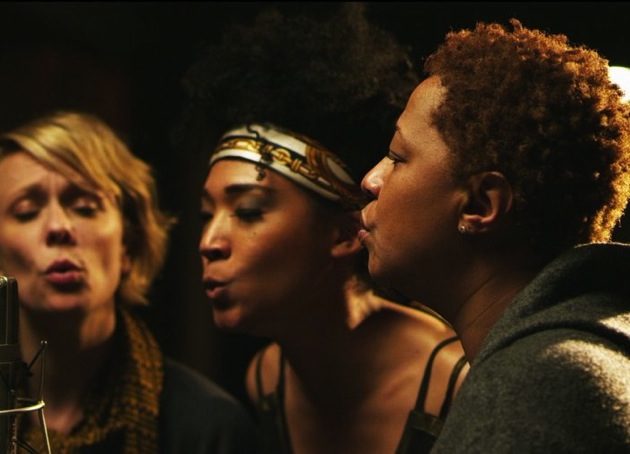SUNDANCE REVIEW: Back-up Singers Take Center Stage In Rousing, Intimate 'Twenty Feet From Stardom'

Pulling raw talent from the footnotes of rock 'n' roll history and splashing their names up on the marquee where they belong, Twenty Feet From Stardom wages a compelling crusade to get background singers some long-overdue recognition. Featuring such stalwarts as Darlene Love, Merry Clayton, Lisa Fischer and Tata Vega — many of whose voices are well known even if their names are not — this rousing group portrait should have commercial legs as long as its subjects', leaving satisfied audiences everywhere listening with new ears. Director Morgan Neville's loving spotlight, produced by late A&M Records exec Gil Friesen, ensures their contributions will go unsung no more.
Not everyone is cut out for stardom, observes Bruce Springsteen at the outset, and the film ultimately hammers its "coulda been a contender" point a little too hard when circling back to that idea in the final stretch. But for most of its running time, this personality-packed docu is nothing short of absorbing as it recaps the essential role African-American background singers played in shaping the sound of 20th-century pop music.
Hailing from the gospel tradition (all the big names grew up singing in church, and many had preachers for parents), these vocal powerhouses were the soul of a new sound being practiced by everyone from Ray Charles to Elvis Presley, replacing the earlier model, in which clean-cut crooners performed alongside two or three white ladies. Now in her 70s and reunited here with the Blossoms, Love paved the way for black women to support some of the most successful names in rock history, occasionally even "ghosting" for other acts who took the credit. That's Love singing lead on the Crystals' hit "He's a Rebel," for example, though producer Phil Spector personally stood in the way of her solo career.
Most of the time, the music-buying public had no idea whom they were listening to, but the industry folks certainly did, creating opportunities for the likes of Clayton, who recalls screaming "Rape! Murder!" for the Rolling Stones' "Gimme Shelter" in the middle of the night with curlers in her hair, and the Waters Family, featured on "Thriller" and "The Circle of Life" (who, amazingly, also recorded dino-bird sounds on Avatar). In virtually every minute of its first hour, the film reveals fresh details many might not already know about songs they've heard countless times, reinforcing its points with sound bites from Mick Jagger, Stevie Wonder and Sting. These stars aren't merely endorsing the vocalists they swear by, either; speaking candidly, they offer meaningful observations about the vagaries of the biz.
Neville's approach establishes a real intimacy with the half dozen singers he follows most closely, varying the camerawork and editing just enough among them to capture the distinct personality of each. The featured ladies represent several generations of success and struggle, and the pic brings the myriad talking points to life with rare TV appearances, half-forgotten milestones and other archival treasures, while nifty graphics help direct viewer attention, putting the sidelines in our sight lines.
And then comes the heartbreak. Though a few have broken out of the background to become headliners — like male example Luther Vandross, who started out singing support for David Bowie — most rely on the generosity of other artists for what limited exposure they get. At one point, Love was reduced to cleaning houses, and former "Ikette" Claudia Lennear (who posed for Playboy at the height of her celebrity) now works as a Spanish teacher. Some, like Grammy winner Fischer, seem more comfortable enriching others' performances, while up-and-comer Judith Hill (who sang at Michael Jackson's funeral) risks undermining her personal momentum every time she accepts a supporting gig.
As the film's title wistfully suggests, many background singers have musical talent far exceeding those for whom they have performed — a subject rich enough to have fueled the tuner Dreamgirls. And yet, for various reasons ranging from market forces to the fact they didn't write their own songs, they never managed to launch successful solo careers. Just as entire documentaries could be made about one-hit wonders, the discussion of near-miss stardom is almost a distraction from the enormous contribution these vocalists have made to contemporary music, while reducing the measures of success to fame and fortune. And yet, this perceived injustice gives the pic a catchy hook, no doubt creating fresh career opportunities for its subjects, if not necessarily the stardom that has so long eluded them.
Follow Movieline on Twitter.
